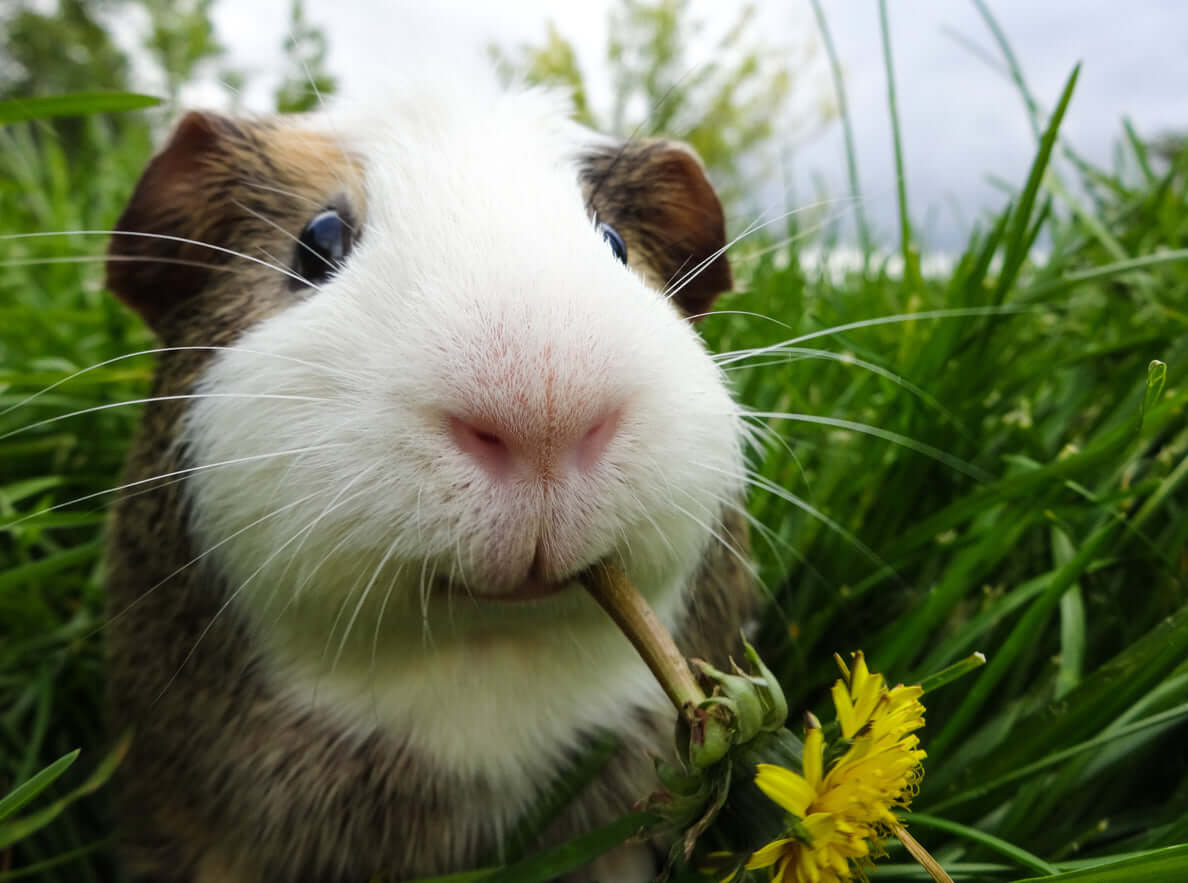Guinea pigs, with their friendly personalities and relatively simple care requirements, make excellent pets, especially for families. However, before you bring one of these adorable creatures into your home, there are some key things you should know to ensure they live a healthy and happy life. Here’s a list of the top 10 things to consider:
- Guinea Pigs are Social Animals
Guinea pigs thrive on companionship, both from their humans and other guinea pigs. It’s highly recommended to keep them in pairs or small groups. They communicate with each other through various sounds and gestures, which is why having a buddy is essential for their mental health.

- They Need a Spacious Enclosure
Despite their small size, guinea pigs require a lot of space to move around. A standard cage might seem sufficient, but it’s crucial to provide them with an enclosure that allows them to run, explore, and stay active. A great option is the Clearly Loved Pets Lucidium Pen, which is not only spacious but also provides a clear view, making it easier for you to interact with your pets while they feel secure and free.

- Diet is Crucial
Guinea pigs need a diet rich in vitamin C as they cannot produce this vitamin on their own. Fresh vegetables like bell peppers, carrots, and leafy greens should be a staple, along with a good quality guinea pig pellet and unlimited access to hay, which aids in digestion and keeps their teeth healthy.
- Regular Health Checks are Important
Guinea pigs are prone to certain health issues, including dental problems, respiratory infections, and skin conditions. Regularly check their eyes, ears, teeth, and coat for any signs of illness. A quick visit to the vet can help catch any potential problems early.
- Grooming Needs
While guinea pigs are generally good at grooming themselves, long-haired breeds require regular brushing to prevent mats and tangles. Additionally, all guinea pigs need their nails trimmed regularly to avoid overgrowth, which can lead to pain and difficulty walking.

- Bedding and Hygiene
The type of bedding you use in their enclosure is crucial. Opt for materials like paper-based bedding or fleece liners, which are soft on their feet and easy to clean. Regular cleaning of their enclosure is essential to prevent the buildup of ammonia from urine, which can cause respiratory issues.
- They Need Exercise
In addition to a spacious enclosure, guinea pigs benefit from daily exercise outside their cage. Setting up a safe playpen where they can explore, run, and play will help keep them physically and mentally stimulated.

- Guinea Pigs Can Be Noisy
Guinea pigs are quite vocal and will communicate with a variety of sounds, from purring and chirping to loud squeaks when they are excited, scared, or hungry. This is part of their charm but something to be aware of, especially if you’re sensitive to noise.
- Time and Commitment
Guinea pigs can live for 5 to 7 years, with some even reaching up to 8 years. This means you’re committing to a long-term pet. They need daily care, including feeding, cleaning, and social interaction, so be sure you’re ready for the responsibility.

- Bonding with Your Guinea Pig
Guinea pigs can be a bit shy initially, but with patience and gentle handling, they will become affectionate and enjoy spending time with you. Regular interaction will help them feel safe and loved, strengthening the bond between you and your pet.

Conclusion Keeping guinea pigs as pets can be a rewarding experience, but it’s important to be prepared and knowledgeable about their needs. From choosing the right enclosure, like the Lucidium Pen, to understanding their social and dietary needs, these tips will help you provide the best care for your guinea pig, ensuring they live a happy, healthy life.



